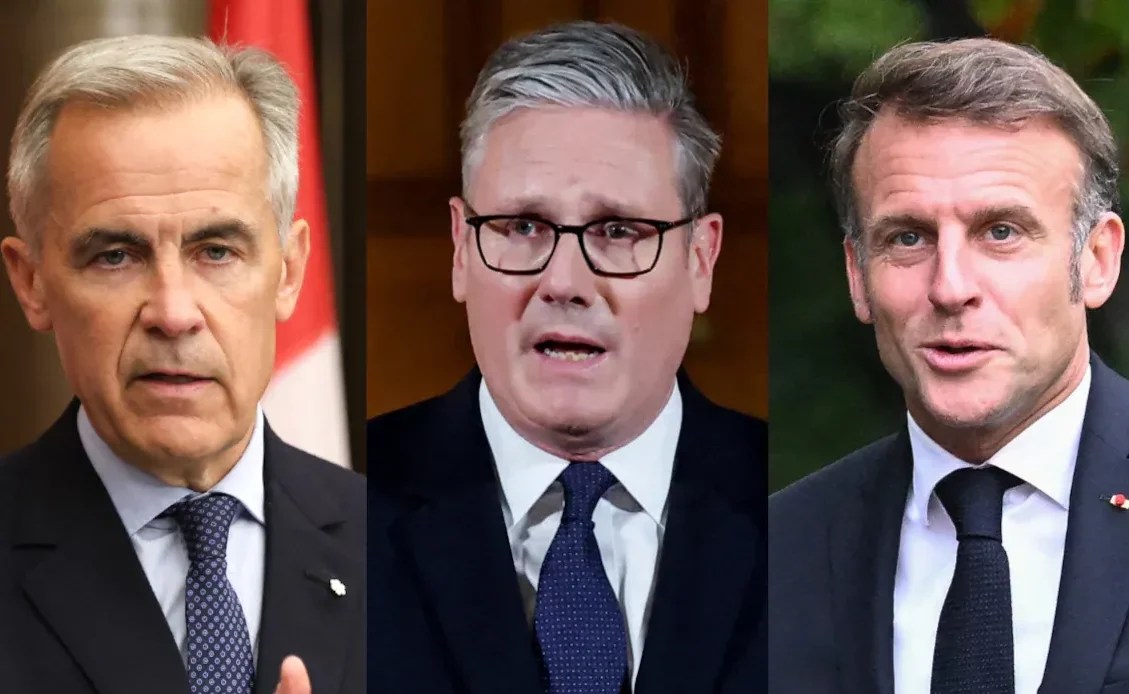By Eboni Brandon
The recognition of Palestine by the UK, Australia, and Canada marks a watershed in global diplomacy, reshaping not only the Israel–Palestine conflict but also a possible shift in the balance of power at the United Nations. The decision leaves the United States increasingly isolated as its closest allies pivot toward acknowledging Palestinian statehood, a move that strengthens calls to classify Israel’s actions in Gaza as genocide.

With France and other European nations now following suit, Palestine’s recognition by Western states represents more than symbolism. It accelerates a legitimacy shift long championed by the Global South, where nearly three-quarters of UN members already recognise Palestine. Now, with four of the UN Security Council’s five permanent members – China, Russia, the UK, and France – on record in support, Washington finds itself a minority of one.
The weight of history
For Britain, the move carries historical resonance. The 1917 Balfour Declaration, issued by then–Foreign Secretary Arthur Balfour, committed the UK to a Jewish homeland in Palestine but promised not to prejudice the rights of existing non-Jewish communities. By recognising Palestinian statehood more than a century later, London is seen as addressing what many describe as “unfinished business” from its colonial stewardship of the territory under League of Nations mandate.
Former UK Foreign Secretary David Lammy underscored this responsibility at the UN earlier this year: “Britain bears a special burden of responsibility to support the two-state solution.” That acknowledgment, paired with recognition, reshapes the UK’s role from historical architect of imbalance to a potential broker of redress.
Shifting Western unity
For decades, the US and its Western allies presented a united front on Israel, conditioning recognition of Palestine on a peace deal. The coordinated recognition by London, Ottawa, and Canberra represents a break with that orthodoxy, signalling not only a moral divergence but also a geopolitical one.
It reflects a deeper erosion of US influence among its allies. Once able to set the terms of debate, Washington now risks being sidelined in global deliberations, as even NATO partners distance themselves from its pro-Israel stance. The symbolism matters: the two-state solution, once a hollow mantra, is being revitalised not by Washington, but by states challenging its veto power.
Public pressure and political cost
Domestic politics played a decisive role. In the UK, Australia, and Canada, governments faced mounting public pressure over Israel’s military campaign in Gaza, with images of starvation and destruction fuelling outrage. Young voters and diaspora communities, especially Arab and Muslim populations, amplified demands for accountability. Recognition of Palestine thus became not just foreign policy but democratic necessity.
By contrast, the US political establishment remains tethered to a bipartisan consensus favouring Israel, despite polls showing American public opinion – particularly among younger generations – is shifting. This growing transatlantic divide raises questions about Washington’s ability to maintain its traditional leadership role.
The genocide debate
Recognition also strengthens the case for accountability under international law. At the International Court of Justice, where South Africa has accused Israel of genocide, the backing of Western powers lends new weight to proceedings. Legal scholars argue that state recognition of Palestine indirectly reinforces its legal personality, bolstering its standing in courts and tribunals.
For campaigners, this alignment between recognition and legal accountability could prove pivotal. What was once dismissed as symbolic politics now intersects with hard law, emboldening efforts to hold Israel to account for alleged war crimes and crimes against humanity.
A global realignment
This moment is also about legitimacy at the United Nations. For decades, recognition of Palestine was framed as a Global South cause, with Latin American, African, and Asian nations taking the lead. Now, with Western powers joining, the debate has shifted from the margins to the centre of international diplomacy.
The implications for US hegemony are profound. Where once Washington could rely on Western allies to blunt calls for Palestinian independence, it now stands virtually alone. This isolation diminishes its credibility not only on the Israel–Palestine question but also on broader issues of multilateral leadership, from climate change to human rights.
What comes next?
The key question is whether recognition will remain largely symbolic or whether it will catalyse concrete change. Israel has threatened annexation of parts of the West Bank in retaliation, while the US warns that recognition “rewards terrorism.” Yet for millions worldwide, recognition represents not appeasement but accountability – a statement that Palestinian rights are not indefinitely negotiable.
The more pressing issue is whether this fracture marks the beginning of the end of the US’s ability to veto consensus at the UN. If so, the Palestine question may prove not only the defining moral issue of the decade but also the flashpoint that reveals the contours of a truly multipolar world.
Stay informed with the latest news and updates from SKN Source! Click here to join our WhatsApp channel and get updates straight to your mobile. Don’t forget to follow us on Facebook for more stories and insights!


Be the first to comment on "Western Recognition of Palestine Signals Erosion of US Hegemony"